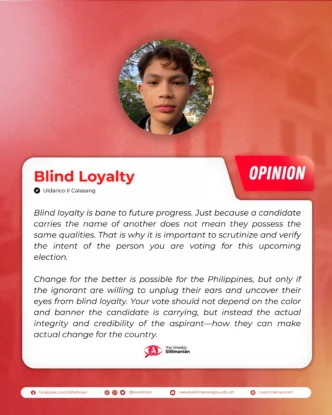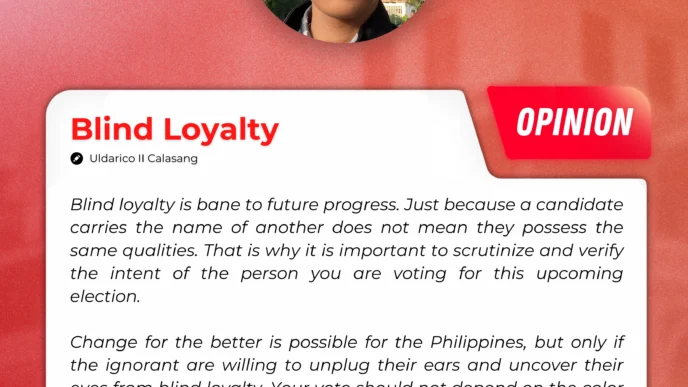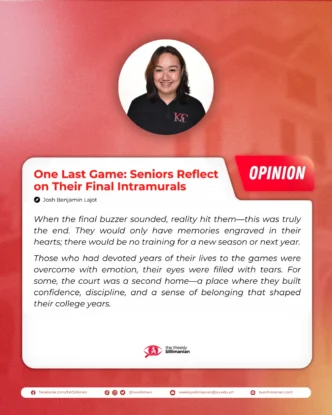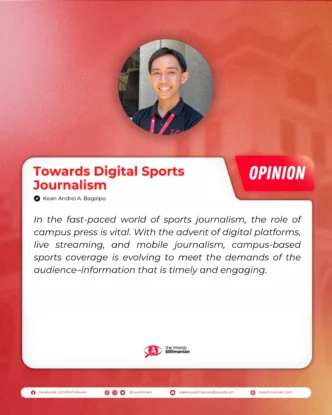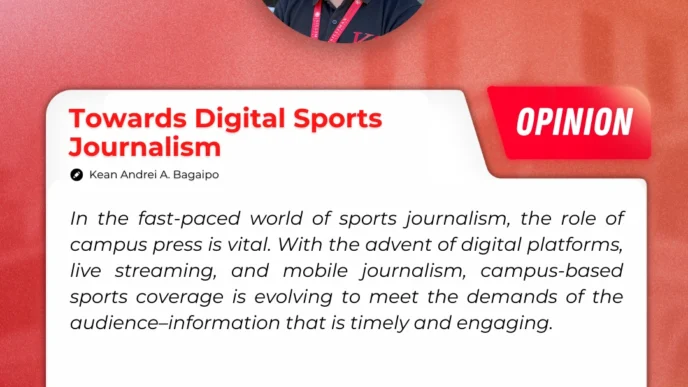Jan Andrei Elizalde
AI can make essays out of any prompt. Even, “explain why AI is unreliable.”
In today’s academe, artificial intelligence has become every student’s best friend. From the simplest essay on photosynthesis to the most hard-hitting paper on refuting the 174-hectare reclamation project—AI has burgeoned into becoming big contributors, if not the main authors, of these works.
But how did this happen in the first place?
Picture yourself in the middle of finals week, the busiest season of a semester. Amidst a whirlwind of major exams are micro-requirements from your minor subjects. If you were to choose between preparing for an accounting final and writing a reflection paper, it is likely that you would prioritize the former. Enter ChatGPT.
Experts cite that ChatGPT is an artificial intelligence chatbot that uses natural language processing to create humanlike conversations. But in the context of students using this AI tool, ChatGPT is simply the key to fast answers and easy quatros. There is, however, debate on its reliability.
How intelligent is artificial intelligence?
There is no doubt that ChatGPT has taken social media by storm. From your Facebook timeline to your Twitter feed, ChatGPT—among other AI tools—has molded a notoriety for itself through promotions and testaments alike. Even the written content you seemingly pass online are often AI-generated.
While innovative and creative in its own right, scholars argue that it is “not always trustworthy” despite the program’s ability to create human dialogue. Notably, ChatGPT finds itself a common perpetrator of misinformation. With easily manipulated information dating back only September 2021, the accuracy of this AI tool continues to be put into question.
The blind leading the blind
Not only can AI take a toll on a student’s academic integrity, it can also echo information that was never factual to begin with.
ChatGPT can be designed to mimic human writing to a high degree, making it difficult for readers to discern whether a paper is generated by AI or written by a human author. This can lead to a false sense of credibility and trust in the content, even if it contains inaccurate or biased information.
AI-fabricated works have the potential to lasso readers into falsehoods and fallacies. And given the decreasing state of society’s attention span, no one simply has the time—or will—to double check their sources.
Ressa said the battle is ours—does she mean our phones?
ChatGPT isn’t limited to simplifying science and math. It can also interfere with politics and, ultimately, the truth.
“The battle is ours,” Rappler CEO and Nobel prize laureate Maria Ressa said, a striking quote during her forum on press freedom at Silliman University.
Battling corrupt powers for press freedom isn’t easy, not only on a national level but also in its grassroots—student publications.
For campus journalists, we struggle to champion the truth if those in opposition are willing to take the extra steps in disproving it—even if it means disproportionately spreading false information.
In a world where facts can easily be overshadowed by the opinions, criticisms, and sentiments of those who are against it—it’s scary to think how misinformation and disinformation can simply come from anyone’s fingertips. Even yours.
However, a scarier world exists. A world where humans are no longer the only instigators of dishonest content, but rather AI tools and bots that offer humanlike dialogue. A world where the battle isn’t simply among people, but a battle between our phones.
I did not write this article alone
While many question the reliability of AI, people often forget to question the true suspects of misinformation and disinformation: the authors.
Anyone is capable of requesting endless content in ChatGPT—prompts like, “write a song about proper nutrition,” and, “list down the top-selling coffee franchises in the world,” can be generated in a matter of seconds.
Truth be told, writer’s block is common—even in writing articles like this. And that’s where ChatGPT comes in. Either somewhere in this paper is merely a copy-paste of AI-generated content, or maybe I authored the entirety of it alone.
All you have to do is believe what I write.

